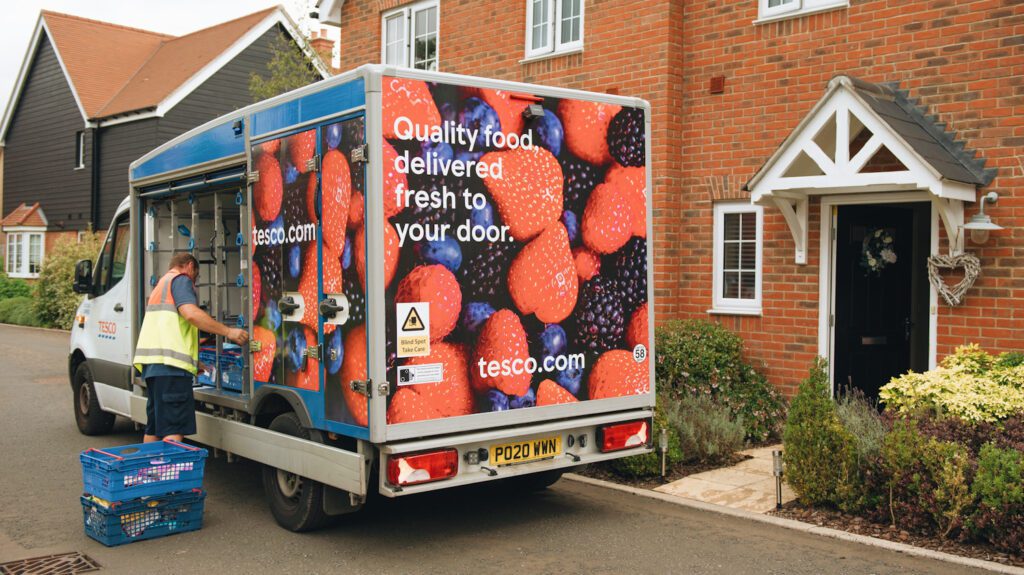The largest supermarket in the UK is moving away from fossil fuels. In an effort to reduce its environmental footprint, Tesco is transitioning to electric delivery trucks.
The chain rolled out two emissions-free freight trucks in January. The electric vehicles deliver food and other products between Cardiff and Magor in Wales, where the train depot and Tesco’s distribution center are located, respectively.
It is the first UK supermarket to use fully-electric freight trucks, according to Tesco. The supermarket has also begun transitioning its more than 2,000 home delivery vans to be fully electric.
The move contributes to the chain’s goal of net-zero emissions for its operations by 2035. By 2025, the company plans on reaching zero-emissions transport operations.
“We’ve already made progress by starting our switch to electric home delivery vans and rolling out electric vehicle charging points for our customers,” said Tesco UK’s CEO, Jason Tarry. “I’m excited that Tesco can also lead the way in electric haulage innovation, helping to tackle this last source of road transport emissions.”

Tesco deliveries go electric
Tesco’s move away from fossil fuels in favor of electric trucks is in line with the UK’s push to decarbonize its transport sector by 2050.
In November 2021, Prime Minister Boris Johnson announced the UK would be phasing out the sale of new gas- and diesel-powered heavy goods vehicles by 2040. By 2030, all new cars and vans must also be emissions-free.
Transportation is the UK’s most pollutive sector. In 2019, it produced 122 million metric tons of carbon dioxide equivalent, according to market research firm Statista. Heavy goods vehicles currently contribute around 16 percent of all of the UK’s transport-related emissions.
Similar to Tesco, a number of supermarkets across the UK are working to reduce their transportation emissions. Aldi, Asda, and Sainsbury’s are transitioning to low-carbon fleets powered by natural gas. The former aims to convert all of its delivery trucks by 2024, which will reduce transport-related carbon emissions by more than 80 percent, according to the company.
Tesco’s move to be more sustainable extends beyond its delivery vehicles. In a bid to reduce plastic waste, the company removed more than 20 million pieces of plastic from its 2021 Christmas range. For the first time ever, its own-brand lights, puddings, cards, and crackers were plastic-free.
In 2019, the chain announced that it would ban products from brands that use excessive plastic packaging. And last year, Tesco revealed it was working on new plant-based innovations in order to help reduce its customers’ dairy and meat consumption. The move followed allegations that linked Brazilian meat giant JBS—a major supplier for Tesco—to illegal Amazon rainforest deforestation.
“We realize the UK needs to reduce meat and dairy consumption,” former Tesco CEO David Lewis said. “Since 2018 we’ve been working with suppliers to drive plant-based innovation and choice, leading to increases in our plant-based meat alternative products.”


